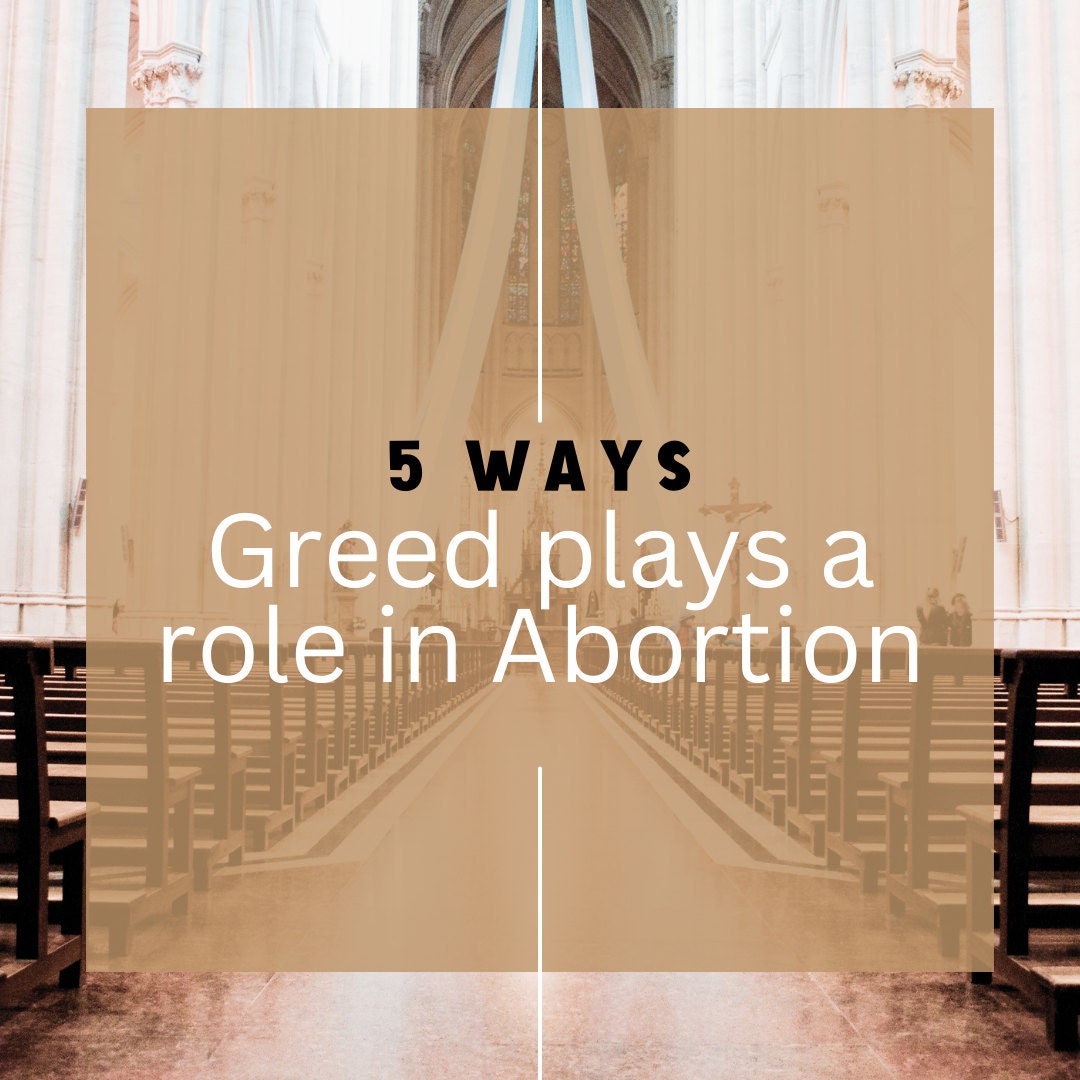Greed can play a significant and often overlooked role in the issue of abortion, both on an individual and societal level.
1. Economic Pressures and Personal Gain
- Financial Concerns: One of the most common reasons cited for seeking an abortion is financial instability. The fear of not being able to afford a child or the desire to maintain a certain lifestyle can lead individuals to choose abortion as a solution. This decision, influenced by a desire to preserve material comfort or avoid economic hardship, can be seen as rooted in greed—a prioritization of material well-being over the intrinsic value of human life.
- Career and Social Advancement: In some cases, the prospect of a child is perceived as a hindrance to career progression or social standing. The desire to maintain or advance one's status or economic position can lead to the decision to abort, valuing personal success over the life of the unborn child. This reflects a form of greed where self-interest and ambition override the moral imperative to protect innocent life.
2. Societal and Corporate Greed
- Abortion Industry Profit: The abortion industry itself can be driven by greed. Organizations and businesses that provide abortion services often operate within a framework where financial gain is prioritized. The monetization of abortion services, including the selling of fetal tissues for research, highlights how greed can corrupt the sanctity of life. This commercial aspect of abortion turns a grave moral issue into a profit-making venture.
- Government and Policy Influence: Greed can also be seen in the way certain policies and government actions are shaped. For example, governments may fund or promote abortion services under the guise of economic efficiency, suggesting that reducing the number of dependents (i.e., children) is a way to manage limited resources. This reflects a utilitarian mindset where the value of human life is measured against economic cost, a clear manifestation of greed on a societal level.
3. Cultural Greed and the Devaluation of Life
- Consumerism and the Culture of Death: Pope John Paul II often spoke about the "culture of death," which is closely tied to the pervasive greed in modern society. In a consumer-driven culture, where success and happiness are often measured by material possessions and personal freedom, the unborn can be seen as an inconvenience. The prioritization of material wealth and personal autonomy can lead to the justification of abortion as a means to avoid the perceived burdens of parenthood. This is a profound distortion of the true value of life, driven by a culture that exalts personal gain over the sanctity of human life.
4. Counteracting Greed with Charity
- Supporting Life through Generosity: The antidote to greed is charity. By fostering a culture of life through acts of generosity, such as supporting pregnant women in need, advocating for social policies that protect the vulnerable, and providing resources for families, the Church seeks to counter the greed-driven narratives that contribute to abortion.
- Valuing Life Above Material Gain: Charity also involves a radical reorientation of values, where human life is valued above all material goods. The call is to recognize the inherent dignity of every person, born and unborn, and to resist the temptation to prioritize material gain over moral truth. This involves a commitment to promoting a culture that supports life at all stages, ensuring that no one feels forced to choose between their well-being and the life of their child.
In summary, greed plays a significant role in the issue of abortion by influencing decisions at both individual and societal levels. Whether through financial pressures, career ambitions, or the profit-driven motives of the abortion industry, greed contributes to the devaluation of human life. The Catholic response to this is to cultivate a culture of charity, where the sanctity of life is upheld and supported by acts of love, generosity, and justice.

